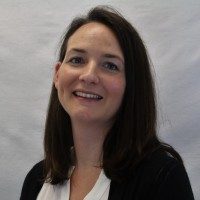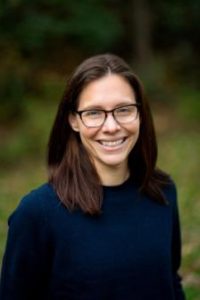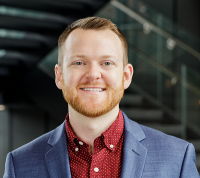
Michael Copenhaver, PhD
Dr. Copenhaver has been awarded two K awards including a K02, Independent Scientist Award, and a K24, Midcareer Investigator Award in Patient-Oriented Research.
K02 - HIV Prevention and Adherence Among Priority Drug Using Populations
Through this award Dr. Copenhaver received funding that supported a range of specific activities that helped improve the development of HIV prevention and adherence intervention approaches targeting drug users nationally and internationally. This K02 provided the essential framework and release time for Dr. Copenhaver to contribute to the next generation of HIV prevention and adherence programs targeting this priority population with the ultimate goal of improving the HIV pandemic.
K24 - Optimizing HIV Prevention Among Opioid-Dependent Persons
This K24 mid-career development award provided the time needed to advance Dr. Copenhaver's patient-oriented research (POR) program and his mentoring of new HIV prevention science investigators. Specific synergistic activities were proposed that allowed him to simultaneously expand his POR to priority domestic and international settings and mentor the next generation of investigators, all with the overarching goal of optimizing HIV prevention among opioid-dependent persons.

Emily Hennessy, PhD
Dr. Hennessy was awarded a K01, Mentored Research Scientist Development Award, in August 2020.
K01 - Mechanisms of social identity, social networks, and recovery capital: Implications for recovery
The career development plan includes training in alcohol-specific recovery processes and trajectories of change, social identity and social network change processes for recovery during adolescence, social network and mixed methods study design, and lab management and grantsmanship. The K01 study is a longitudinal observational study that will utilize a social identity mapping (SIM) approach to examine social network, social identity, and recovery capital change among adolescents with AUDs in outpatient treatment. The SIM will be adapted from existing adult implementation models to specifically address adolescent needs and a comprehensive longitudinal model of the effects of adolescents' social network, social identity, and recovery capital on substance use outcomes will be developed.
Mentors
- Blair Johnson, InCHIP/Psychology, Co-Primary Mentor
- John Kelly, Massachusetts General Hospital, Co-Primary Mentor
- Mark Litt, UConn Health, Professor of Behavioral Sciences, Co-Mentor

Lindsey Lepley, PhD
Dr. Lepley was awarded a K01, Mentored Research Scientist Development Award, in March 2018.
K01 - Influence of Eccentric Exercise to Promote Muscle and Joint Health Following ACL Injury
The purpose of this K01 is to promote Dr. Lindsey Lepley’s independent research program by training under Dr. David Goldhamer and other skilled musculoskeletal physiologists, orthopaedic surgeons, statisticians and engineers at the University of Connecticut, to gain the necessary scientific skills and career development to advance her research line to a new level. Dr. Lepley’s long-term career goal is to lead a research team focused on developing evidence-based strategies to prevent the development of post-traumatic osteoarthritis (PTOA). The central tenant of this K01 is to identify rehabilitation strategies capable of promoting muscle and joint health after anterior cruciate ligament (ACL) injury.
Mentors
- David Goldhamer, UConn, Professor & Associate Director, Dept. of Molecular & Cellular Biology, Mentor
- Timothy Butterfield, Associate Professor, University of Kentucky, Dept. of Rehab Sciences, Co-Mentor

Sherry Pagoto, PhD
Dr. Pagoto was awarded a K24, Midcareer Investigator Award in Patient-Oriented Research, in April 2015.
K24 - Mentoring in mHealth and Social Networking Inteventions for CVD Risk Reduction
This K24 award is designed to support mentoring in digital health research for cardiovascular disease prevention that leverages the resources of the UConn Center for mHealth and a transdisciplinary co-mentoring team. The Candidate's training model will equip mentees with: research methodology skills, knowledge of the “idea to market” process, opportunities to collect preliminary data, grant/manuscript writing experience, professional development, training in the ethical conduct of research, and “hands on” team science experience.

Roman Shrestha, PhD, MPH
Dr. Shrestha was awarded a K01, Mentored Research Scientist Development Award, in July 2020.
K01 - Training in Mhealth Prevention with MSM
This K01 award focuses on first understanding MSM's preferences of specific attributes of PrEP delivery programs, followed by developing and testing a smartphone app to deliver a combination HIV prevention intervention that incorporates pre-exposure prophylaxis among MSM. Findings will inform the development of innovative and tailored primary HIV prevention strategies to address co-occurring sexual and drug risk behaviors and to enhance the HIV prevention gap in Malaysian MSM.
Mentors
- Frederick Altice, Yale University, Professor of Medicine, Mentor
- Adeeba Kamarulzaman, University of Malaya, Professor, Faculty of Medicine, Co-Mentor
- Patrick Sullivan, Professor, Emory University Dept. of Epidemiology, Co-Mentor
- Denise Esserman, Associate Professor, Yale University, School of Public Health, Co-Mentor
- Liana Fraenkel, Associate Professor, Yale University, Dept. of Medicine, Co-Mentor
- Michael Copenhaver, Professor, University of CT, Allied Health Sciences/InCHIP, Co-Mentor

Ryan Watson, PhD
Dr. Watson was awarded a K01, Mentored Research Scientist Development Award, in March 2019.
K01 - PrEP and substance use among sexual minority young adults
This K01 study examines how sexual orientation, identity disclosure, and minority stress experiences relate to HIV prevention and substance use across the pre-exposure prophylaxis (PrEP) care continuum among African American and Hispanic/Latino young men who have sex with men (YMSM). The investigation of differential PrEP uptake and linkage to care on the basis of sexual identity, race/ethnicity, and disclosure of sexual identity will identify under what conditions YMSM of color are most vulnerable to HIV infection and unhealthy substance use. The examination of these factors across multiple levels (e.g., interpersonal, community, societal) highlight critical points for individual-level prevention strategies to eliminate disparities in HIV infection and substance use across vulnerable populations of young people.
Mentors
- Lisa Eaton, Associate Professor, UConn, HDFS, Primary Mentor
- Philip Chan, Associate Professor, Brown University, Dept. of Medicine, Co-Mentor
- E. Jennifer Edelman, Associate Professor, Yale University, Dept. of Clinical Epidemiology, Co-Mentor